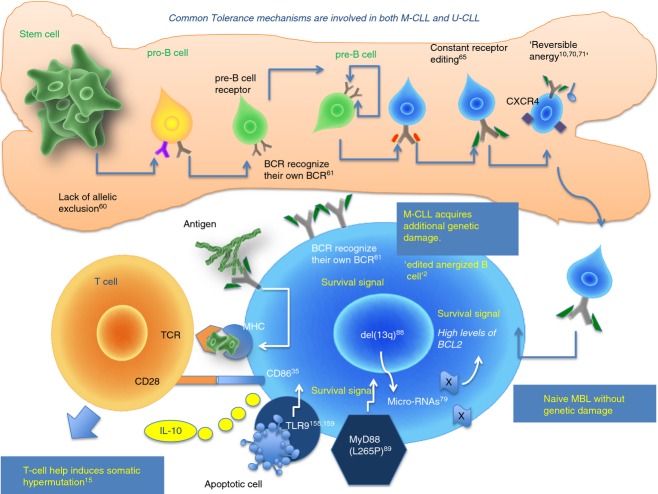Figure 4.
Mutated chronic lymphocytic leukaemia (M-CLL) lymphocytes have molecular and genetic disturbances that promote survival and tolerance. Deletion of 13q14.3 contains two micro-RNAs, miRs15a and 16-1, involved in the control and the production of BCL-2, an anti-apoptotic factor produced at high levels in CLL B cells. Activating MyD88 mutation enhances the response of Toll-like receptor (TLR) to their ligands. Immunosuppressive cytokines such as interleukin-10 (IL-10) may be induced in M-CLL B cells by the engagement of TLR9 with apoptotic cells. TLR9 stimulation induces CD86 expression in M-CLL. The interaction of CD86 with CD28 provides co-stimulatory signals for T cells activated through the T-cell receptor. These interactions may promote survival of M-CLL B cells but also promote tolerance and B-cell maturation arrest. Interactions of B-cell receptors (BCR) that recognize their own BCR epitopes may promote survival and prevent apoptosis.

